Many Kenyans working in the boda boda sector depend on motorcycles to make a living, yet the process of owning one has become a painful trap for many.
Companies like Mogo and Watu Credit present themselves as saviors, helping riders acquire bikes through financing. But behind the glossy marketing lies a cycle of exploitation that has left thousands of hardworking riders deep in debt and despair.
What seems like a lifeline quickly turns into a nightmare, with stories of mistreatment, hidden charges, and intimidation becoming all too common.
In a message shared with blogger Cyprian Nyakundi, one frustrated borrower described just how bad things have become. The person wrote, “Hello Nyakundi. I have been your follower and you are doing good work. These Mogo companies are thieves and have mistreated us badly; they should be closed. There is another one called Watu Credit, they have no mercy. Imagine you pay Ksh 40,000 and for that motorcycle you will pay Ksh 250,000, and if you buy the bike in cash it is Ksh 150,000. When you try to finish paying you are either cheated or threatened, and when their bikes go missing you cannot recover them even if tracked. They claim they cannot locate the thieves. Please, please help these motorcycle owners.”
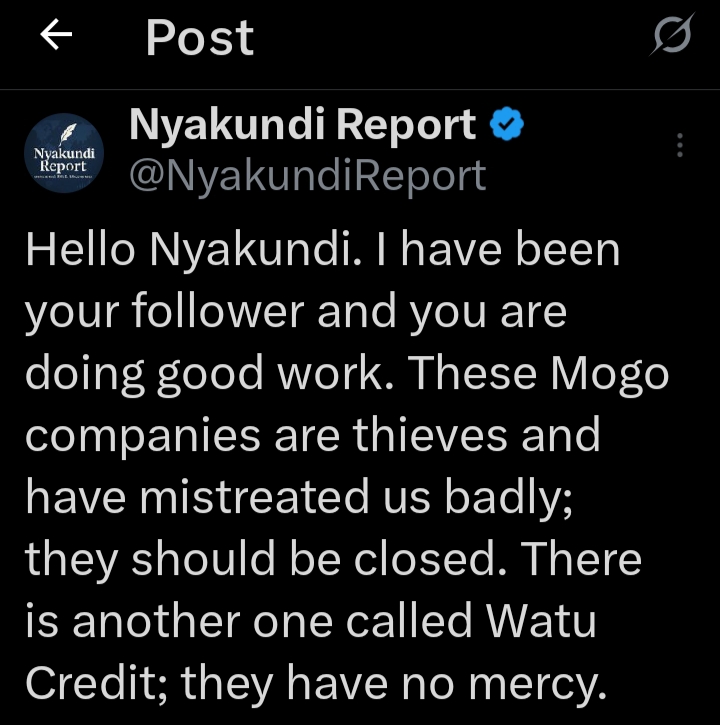
That cry for help reflects what many riders are facing daily across Kenya.
The structure of the loans is deliberately designed to keep borrowers trapped.
A motorcycle that costs Ksh 150,000 in cash ends up costing around Ksh 250,000 or even more when financed through these lenders. The high interest rates and unexplained fees make repayment almost impossible.
By the time a borrower thinks they are nearing completion, new charges appear, ownership papers are delayed, and the sense of progress disappears. Riders have described being harassed or threatened when they fall behind on payments, sometimes even losing their bikes overnight despite having paid most of the amount.
The issue of stolen bikes adds another painful twist. Most motorcycles financed by Mogo or Watu Credit come fitted with trackers, meant to assist in recovery if stolen. Yet when thefts occur, the companies are often slow to respond or claim they cannot trace the location even when tracking data is available.
In the end, borrowers are forced to continue paying for a bike they no longer have, while insurance delays or outright denials leave them with nothing. For someone whose only source of income is the motorcycle, this loss is devastating.
Inside the companies, the situation is no better. Employees at Watu Credit have raised complaints of mistreatment, poor working conditions, and favoritism. Many claim they are overworked, forced to work weekends and holidays for no extra pay, and still earn meager salaries of around Ksh 32,000.
Some have alleged that promotions are based on connections rather than merit, and job cuts in offices like Meru and Thika have caused panic among staff.
Mogo too has been accused of lacking transparency in loan calculations, with customers saying that out of a Ksh 3,125 payment, barely Ksh 800 goes toward reducing the principal loan while the rest vanishes into interest and hidden charges.
These practices show a disturbing pattern of exploitation that targets low-income earners struggling to survive. For many riders, these companies are not partners in progress but obstacles standing between them and financial freedom.
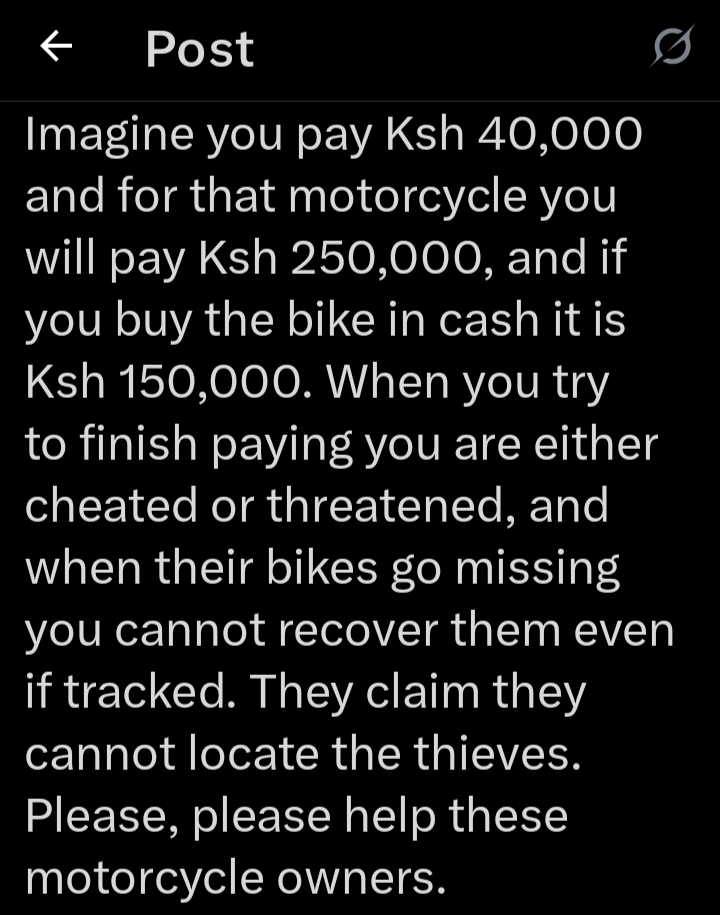
The boda boda sector keeps Kenya’s economy moving, yet its workers are being drained by predatory lenders who profit from desperation.







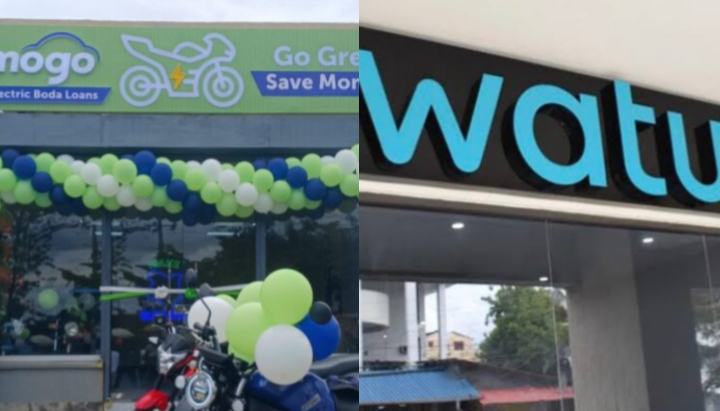
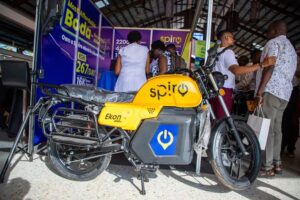
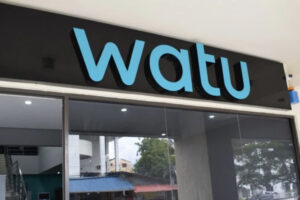

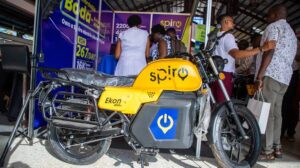




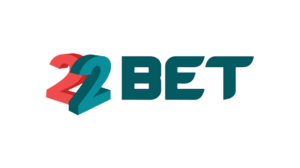



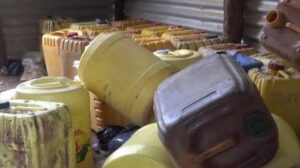
Add Comment